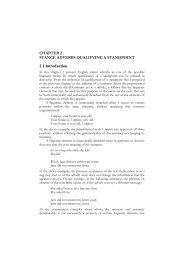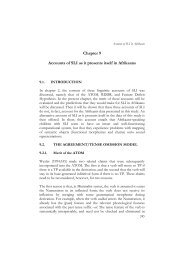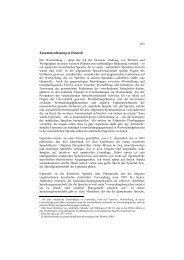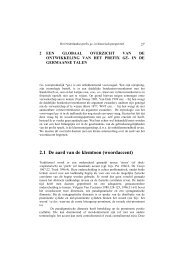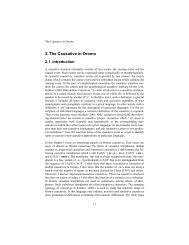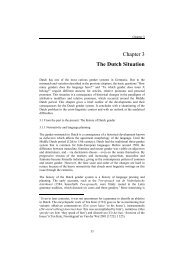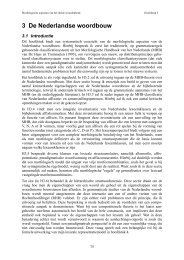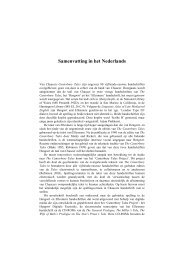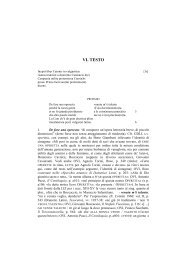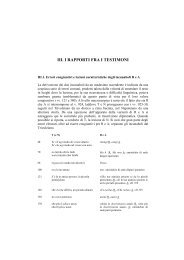Chapter 8: Other Verb-Phrase Operations - LOT publications
Chapter 8: Other Verb-Phrase Operations - LOT publications
Chapter 8: Other Verb-Phrase Operations - LOT publications
You also want an ePaper? Increase the reach of your titles
YUMPU automatically turns print PDFs into web optimized ePapers that Google loves.
200 A Grammar of Mualang<br />
8.4.4 <strong>Other</strong> adverbial modifications<br />
Adverbial modification normally adds meaning to the verb primarily via adverbs,<br />
along with several other syntactic constructions. Semantically, adverbial<br />
modification can be divided into several subclasses discussed in the next sections.<br />
8.4.4.1 Manner<br />
Adverbial manner is realized in several ways. First, by the use of serial verb<br />
constructions (=SVC; see section 10.2 of <strong>Chapter</strong> 10), in which the second verb,<br />
most likely a static intransitive verb, functions as a manner adverb to the first verb.<br />
The bold sequences in the following examples illustrate such serial verb<br />
constructions:<br />
(8-76) Tay nama pulay puang, ngay kami.<br />
REL name go.home empty not.want 1p.excl.<br />
‘What is called going home empty (i.e. if you turn down our marriage<br />
proposal), that’s something we surely don’t want to do.’<br />
(8-77) Arus ba-kerja keras=m kita’!<br />
must ANPAS-work hard=m 2p<br />
‘You all must really work hard!’<br />
Some ba-derived verbs with stative meaning may also function adverbially, e.g.:<br />
(8-78) Ka’ N-kisah kati cara ba-uma<br />
want ACT-story how way ANPAS-rice.field<br />
ba-pin’ah –pin’ah<br />
ANPAS-move-RED<br />
‘(I) want to tell you about how to do “slash and burn cultivation”.’ (lit.<br />
‘I want to tell about how to do rice field work by moving around’ (from<br />
one place to another))<br />
(8-79) Turun ba-lubah – lubah, ia N-inaw tay<br />
descend ANPAS-slow/quiet-RED 3s ACT-search REL<br />
ba-gu’.<br />
ANPAS-sound<br />
‘Descending slowly and quietly, he looked for what had made a sound.’<br />
Se-derived words may also be used adverbially, indicating the way the action of<br />
the preceding main verb is enacted (for the numeral prefix se-, see 4.1.2.1.1):




